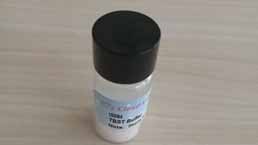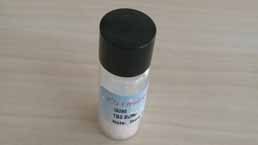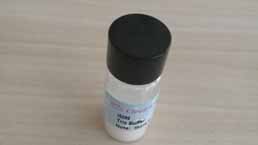Polyclonal Antibody to Lysophosphatidylcholine (LPC) 

lysoPC; Lysolecithin; 1-Palmitoyl-sn-Glycero-3-Phosphocholine
Overview
Properties
- Product No.PAK621Ge01
- Organism SpeciesPan-species (General) Same name, Different species.
- ApplicationsELISA
If the antibody is used in flow cytometry, please check FCM antibodies.
Research use only - DownloadInstruction Manual
- Category
- SourcePolyclonal antibody preparation, Host Rabbit
- Ig Type IgG, Potency n/a
- PurificationAntigen-specific affinity chromatography followed by Protein A affinity chromatography
- LabelNone
- Immunogen CPK621Ge21-OVA Conjugated Lysophosphatidylcholine (LPC)
- Buffer Formulation0.01M PBS, pH7.4, containing 0.05% Proclin-300, 50% glycerol.
- TraitsLiquid, Concentration 0.5mg/mL
Sign into your account
Share a new citation as an author
Upload your experimental result
Review

Contact us
Please fill in the blank.
Specifity
The antibody is a rabbit polyclonal antibody raised against LPC. It has been selected for its ability to recognize LPC in ELISA and CLIA.
Usage
Enzyme-Linked Immune Sorbent Assay: 0.5µg/mL;
Optimal working dilutions must be determined by end user.
Storage
Store at 4°C for frequent use. Stored at -20°C in a manual defrost freezer for two year without detectable loss of activity. Avoid repeated freeze-thaw cycles.
Stability
The thermal stability is described by the loss rate. The loss rate was determined by accelerated thermal degradation test, that is, incubate the protein at 37°C for 48h, and no obvious degradation and precipitation were observed. The loss rate is less than 5% within the expiration date under appropriate storage condition.
Giveaways
Increment services
Citations
- High-fat diet-induced acceleration of osteoarthritis is associated with a distinct and sustained plasma metabolite signaturepubmed:28811491
- Iron Homeostasis Determines Fate of Human Pluripotent Stem Cells Via Glycerophospholipids‐Epigenetic CircuitPubmed: 30599084
- Associations between plasma lysophospholipids concentrations, chronic kidney disease and the type of renal replacement therapyPubmed: 30947711
- ER-residential Nogo-B accelerates NAFLD-associated HCC mediated by metabolic reprogramming of oxLDL lipophagyPubmed: 31358770
- Dietary Betaine Addition Promotes Hepatic Cholesterol Synthesis, Bile Acid Conversion, and Export in RatsPubmed: 32414094
- iPLA2¦Â Contributes to ER Stress-Induced Apoptosis during Myocardial Ischemia/Reperfusion Injury
- Downregulation of activating transcription factor 4 attenuates lysophosphatidycholine-induced inflammation via the NF-κB pathway34582847
- Astragaloside IV Inhibits Bleomycin-Induced Ferroptosis in Human Umbilical Vein Endothelial Cells by Mediating LPC34760046













